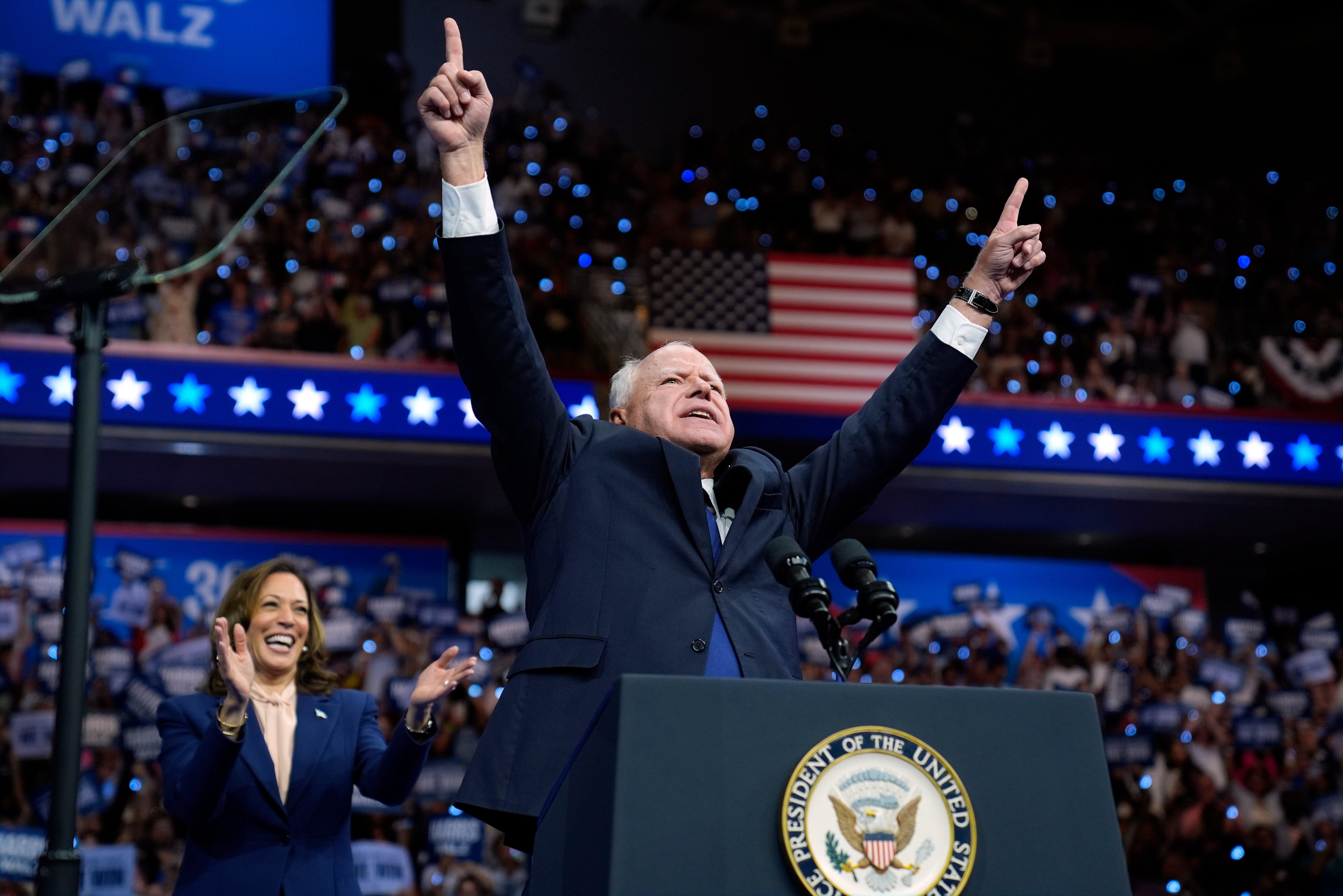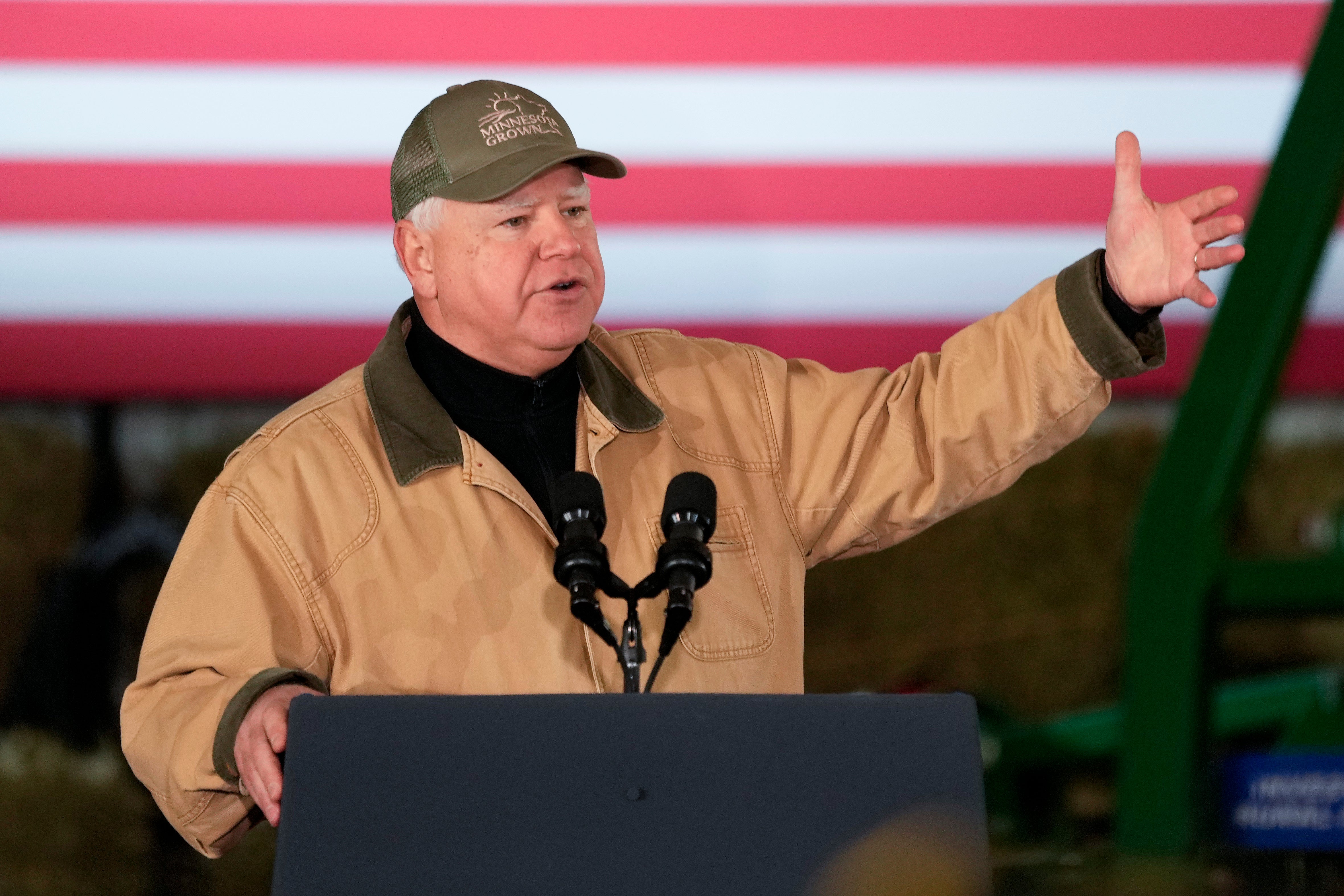A look at the surprising revelations in Tim Walz’s financial disclosures
‘Maybe personal finance isn’t one of his passions,’ said Tyson Brody, an opposition researcher, after the details raised eyebrows

Tim Walz’s financial disclosures have raised eyebrows among his political opponents, but not in the way they might have hoped.
The Minnesota governor and Democratic vice presidential nominee’s financial interests are shocking for how extremely boring they are — almost non-existent, in fact.
Walz doesn’t own a single stock, according to Axios. His disclosures also show no mutual funds, bonds, private equities, or other securities. He and his wife don’t even own property, having sold their house before moving into the governor’s mansion.
A top-flight politician with no investments is highly unusual. The disclosures of a candidate running for office are usually a gold mine for opposition researchers, who can build narratives and attack lines out of them.

Tyson Brody, an opposition researcher who has previously worked on campaigns for Barack Obama, Hillary Clinton and Bernie Sanders, said there wasn’t much to see in Walz’s disclosures. But he added that the releases, which cover Walz’s final year in Congress and his time as Minnesota governor, may not tell the full story of his net worth.
“What we’re not seeing are his federal benefits like the thrift savings plan, which is basically like the federal government’s 401(k),” he said, explaining that members of Congress are not required to list them on personal financial disclosures.
“And Minnesota disclosures also don’t require to list out such mutual fund-style investments, only individual stocks. He’s also likely eligible for military benefits which he has yet to start collecting, so they wouldn’t have been listed either,” he added.
Brody, who now works as a political consultant, was part of a team that researched Mitt Romney’s record as head of the investment firm Bain Capital during Obama’s 2012 presidential campaign. The findings were turned into ads about Romney shipping jobs overseas and came to define his character during the campaign.
“As an opposition researcher, I don’t really look at this and think he [Walz] is hiding something, just that maybe personal finance isn’t one of his passions,” he concluded.
There may be other reasons why Walz does not own stocks. He championed and was present at the Oval Office signing of a law passed by Barack Obama in 2012 that prevents lawmakers and staffers from trading stock based on nonpublic information.
A bipartisan group of senators has been pushing to expand on that law by banning the trading of individual stocks by lawmakers and their families.
And while not having a portfolio is unusual for a top-flight politician, it is extremely normal for the wider American public. Nearly 40 per cent of Americans do not own stocks, according to a Gallup poll from last year, and people with lower incomes are less likely to own them.
In other words, it’s perfectly in keeping with Walz’s everyman, “Midwest Dad” persona.
Subscribe to Independent Premium to bookmark this article
Want to bookmark your favourite articles and stories to read or reference later? Start your Independent Premium subscription today.

Join our commenting forum
Join thought-provoking conversations, follow other Independent readers and see their replies
Comments